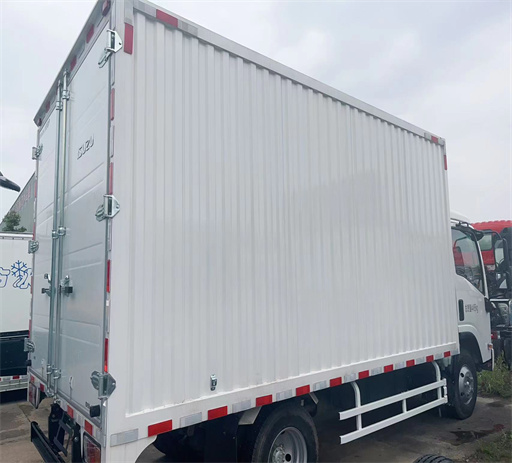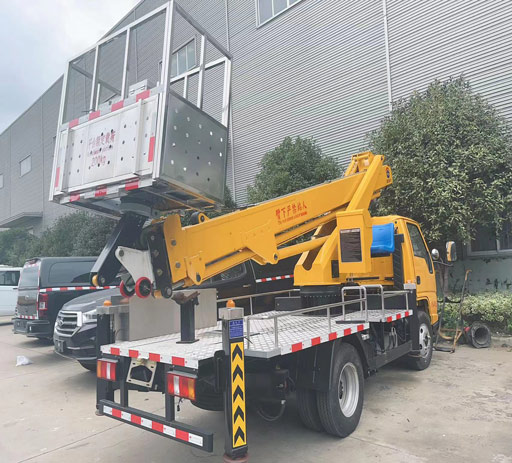Gasoline Tank Trailer: A Comprehensive Guide
The gasoline tank trailer is an essential piece of equipment for transporting fuel safely and efficiently. Whether you’re a business owner in the transport sector or someone interested in understanding fuel logistics, it’s vital to grasp the importance, functionality, and best practices related to gasoline tank trailers. This guide will give you valuable insights into various aspects, from regulations to maintenance tips.
What is a Gasoline Tank Trailer?
A gasoline tank trailer, also known as a fuel tank trailer, is designed specifically for the transportation of gasoline and other petroleum products. These trailers are built to ensure the safe and compliant movement of hazardous materials on roads.
Types of Gasoline Tank Trailers
Gasoline tank trailers come in several types to meet diverse transportation needs:
- Single-walled Trailers: Typically used for short distances and less hazardous materials.
- Double-walled Trailers: Built with two layers, offering added protection against leaks and spills.
- Vacuum Tank Trailers: Designed to remove liquids from underground storage tanks.
The Structure of a Gasoline Tank Trailer
Understanding the structure of a gasoline tank trailer is crucial for safe operations and maintenance. Here are the main components:
Tank Body
The tank body is the core of the trailer, typically constructed of durable materials such as aluminum or steel. The thickness of the tank walls affects the weight and capacity.
Chassis

The chassis supports the tank and provides the structural integrity of the trailer. It includes axles, wheels, and suspension systems to ensure smooth operations.
Safety Equipment
Safety features include:
- Vapor recovery systems
- Overfill prevention devices
- Emergency shut-off systems
Regulations Surrounding Gasoline Tank Trailers
The transportation of gasoline is heavily regulated to ensure public safety. The following are key regulations to be aware of:

Federal Regulations
In the United States, the Department of Transportation (DOT) governs the transportation of hazardous materials, including gasoline. Regulations include:
- Proper labeling and placarding
- Adherence to the Hazardous Materials Regulations (HMR)
- Driver training and certification requirements
State and Local Regulations
Additionally, states may have specific regulations regarding fuel transportation, including route restrictions and local permits. Always check state and local requirements before embarking on a journey with a gasoline tank trailer.
How to Choose the Right Gasoline Tank Trailer
Selecting the appropriate gasoline tank trailer depends on various factors:
Capacity Needs
Determine the amount of gasoline you need to transport regularly. Trailers come in various capacities, ranging from 1,000 to over 10,000 gallons.
Material of the Tank
Choosing the right tank material affects durability and weight. Aluminum is lighter, while steel offers better strength.
Best Practices for Operating a Gasoline Tank Trailer
To ensure safety and efficiency when operating a gasoline tank trailer, follow these best practices:
Pre-trip Inspections
Before departing, perform a thorough inspection of the trailer. Check for:
- Leaks or signs of corrosion
- Functionality of safety equipment
- Proper tire inflation and condition
Loading and Unloading Procedures
Adhere to strict loading and unloading protocols:
- Use appropriate pumps and hoses
- Ground equipment to prevent static discharge
- Monitor for spills and act quickly if any occur
Maintenance Tips for Gasoline Tank Trailers
Proper maintenance prolongs the life of gasoline tank trailers. Key maintenance tips include:
Regular Inspections
Conduct routine inspections for cracks, rust, or any potential issues. Certified professionals should perform detailed inspections annually.
Cleaning the Tank
Regularly clean the interior of the tank to prevent residue buildup. Follow industry-standard cleaning protocols to ensure safe handling.
Tire Maintenance
Monitor tire pressure and tread condition to ensure safe and efficient transport. Replace tires that show significant wear.
Cost Considerations for Gasoline Tank Trailers
When budgeting for gasoline tank trailers, consider the following costs:
Initial Purchase Cost
The price of a gasoline tank trailer can range widely, depending on size and specifications, usually between $20,000 to $100,000.
Insurance Costs
Insurance is crucial for protecting your investment. Costs will vary based on factors such as trailer value, transportation distance, and insurance provider.
Maintenance and Repairs
Budget for routine maintenance and unexpected repairs. Regular maintenance can save money in the long run.
Examples of Use Cases for Gasoline Tank Trailers
Gasoline tank trailers serve various purposes across different sectors:
Commercial Fuel Delivery
Fuel suppliers use gasoline tank trailers for efficient delivery to gas stations, ensuring they remain stocked for customers.
Construction and Industrial Use
Construction companies often employ gasoline tank trailers to fuel machinery and equipment on-site, allowing for uninterrupted work.
Frequently Asked Questions (FAQ)
1. What is the maximum weight of a loaded gasoline tank trailer?
The maximum weight varies depending on the jurisdiction but typically ranges between 80,000 to 100,000 pounds, including the trailer and fuel.
2. Are there specific licenses required to operate a gasoline tank trailer?
Yes, operators usually need a commercial driver’s license (CDL) with a hazmat endorsement and specific training on handling hazardous materials.

3. How can I prevent leaks when transporting gasoline?
Ensure the tank is in good condition, perform regular checks, and utilize spill containment systems as necessary.
4. What are the common maintenance tasks for gasoline tank trailers?
Common maintenance tasks include tank cleaning, inspection of safety features, tire checks, and routine mechanical upkeep.
5. Can gasoline tank trailers be customized?
Yes, many manufacturers offer customized options to meet specific industry needs, including size, material, and additional safety features.
6. What is the lifespan of a gasoline tank trailer?
With proper maintenance, a gasoline tank trailer can last anywhere from 15 to 25 years, depending on usage and care.
